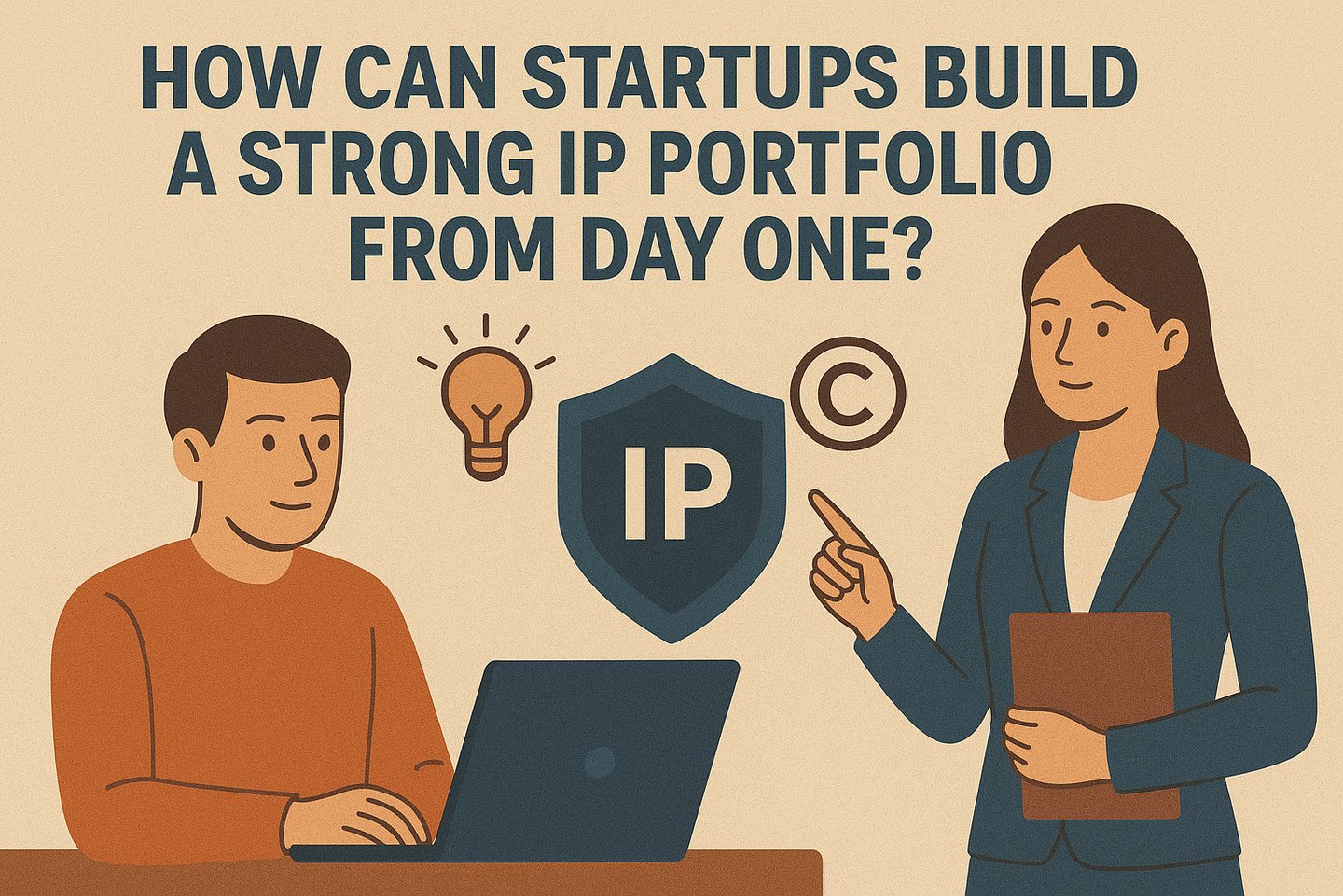How Can Startups Build a Strong IP Portfolio from Day One?
Intellectual property is very important for new businesses because it protects their ideas, innovations, products, and brand names. Having a strong IP plan can stop others from copying, make investors trust the startup more, and increase the brand value.
IPR
Sakshi Fouzdar
9/9/20253 min read


INTRODUCTION
The growth of startups depends on ideas, creativity, and innovation. These factors are more valuable than material resources like money or the machinery. But it is very easy to copy and misuse them. Without any protection, another company can copy your idea or product, use your design, or even register a name similar to your mark, which can put your business at risk.
That’s why intellectual property is very important. A good strategy not only prevents misusing your idea but also helps in building trust and interest of investors. For startups, it should be a priority. Prioritizing IP protection from beginning safeguards your business, accelerates growth, and ensures long-term stability.
TYPES OF IP RELEVANT FOR STARTUPS
1. Trademarks: Protecting brand’s identity
For startups, the brand is what people notice first. Things such as name, logo, tagline, product and taglines create the first impression. Registering trademarks—
· Prevents others from using confusingly similar marks
· Strengthens customer trust and brand recognition
· Strengthens business worth over time
2. Patents: Safeguarding innovations
In fields like technology, engineering, healthcare, and design, startups are driven by innovation. Patents establish exclusive control for investors and protect:
· Business rivals can’t copy your idea
· Long-term protection for research and development investments
3. Copyrights: Protecting creative work
For business startups in media, software, design, or marketing, copyrights help to protect the original work, such as apps, code, marketing content, blogs, videos, and creative designs, and make sure that their ideas stay protected and valuable. Copyrights make sure that these creations remain protected and cannot be copied without permission.
4. Trade secrets: Securing business
Some things are safer kept secret instead of being registered. Examples- Special formulas, recipes, customer details, business strategies, and unique ways of making products. Startups can protect these by using Non-Disclosure Agreements (NDAs), strong internal policies, and limiting who can access the sensitive data.
STEPS TO BUILD A STRONG IP PORTFOLIO FROM DAY ONE
Step 1: Conduct an IP analysis
Before starting, make a list of all your Intellectual Property. That is checking if your brand name is unique, if your product has any patentable characteristics, and keeping track of creative elements like designs or software that should be protected by copyright.
Step 2: Prioritize registration
Not all IP needs protection immediately. Startups should focus first on those that are more important for the brand.
· Protect your company name and logo with trademark registration
· Get patents for your innovation before sharing them publicly
· Register copyrights for your software, designs, and content
Step 3: Make IP Work for You
Your IP strategy should always support your business vision. If your company plans to grow globally, you need to protect your IP in other countries as well. For Trademarks you can use the Madrid Protocol, and for Patents you can use the Patent Cooperation Treaty (PCT).
Step 4: Implement Strong Contracts and Policies
Startups often face problems regarding the distribution of rights, especially when co-founders or employees leave the company. To avoid this-
· Use assignment agreements: These are legal documents that state anything employees develop is owned by the company, not them personally.
· Include IP clauses in employment contracts that state that anything they create as part of their job belongs to the company.
· Signs NDAs (Non-Disclosure Agreements): Have partners, investors, and contractors sign documents promising not to share or use your secret information.
Step 5: Monitor and Enforce IP Rights
Just having protection isn’t enough; you also need to make sure no one is breaking the rules. Startups should:
· Regularly check if anyone is copying or using your brand, name, or content without your permission.
· If someone is violating your rights, take legal action against them.
· Get help from IP experts to make sure your protections stay valid like renewing trademarks.
WHY A STRONG IP PORTFOLIO IS IMPORTANT FOR STARTUPS
1. Attracting Investors: Investors like startups that protect their ideas, because it makes the brand more valuable and less risky.
2. Competitive Edge: IP helps prevents others from copying your ideas and make startups more valuable.
3. Revenue Generation: You can make extra money by letting others use your IP or brand licenses.
4. Business Valuation: Having strong IP makes your company more valuable, which helps if you want to sell or merge.
5. Global Expansion: IP protection safeguards your brand and products as you expand globally.
CONCLUSION
For startups, intellectual property (IP) is not only about preventing others from copying your intellect; it also helps the business grow. If a startup protects its ideas, brand, name, and products from the beginning, it can build trust with investors, be distinct in the market, and make its ideas more valuable. Thinking about protecting IP in the beginning makes sure the company’s work is safe and supports long-term success.
